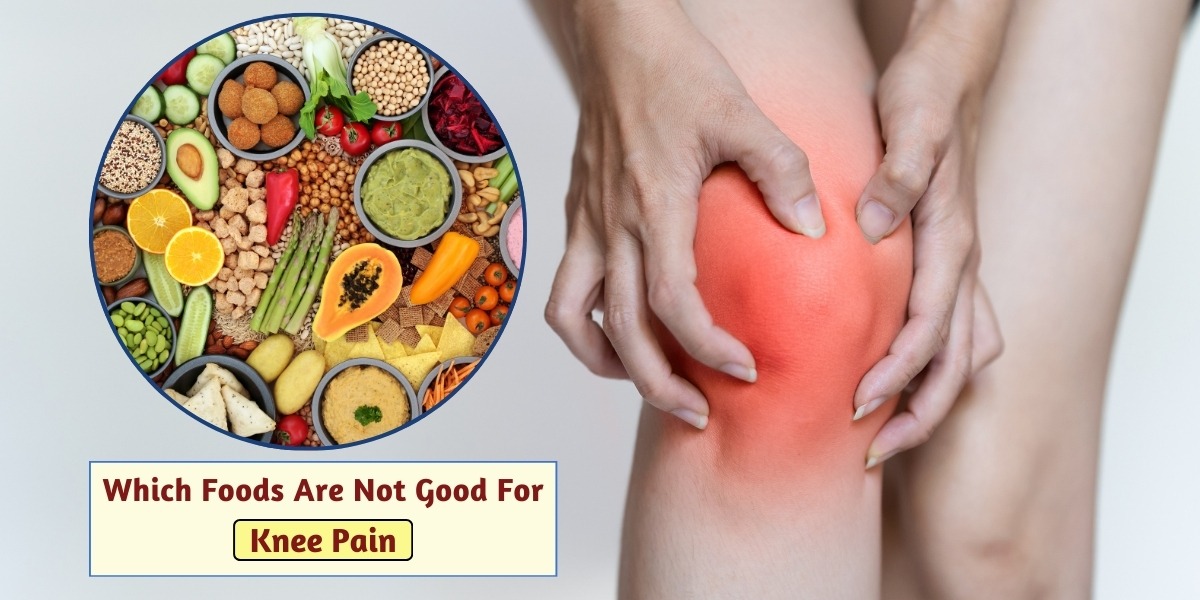Knee pain is a common issue that affects millions of people worldwide. While various factors contribute to knee pain, such as injuries, arthritis, and overuse, diet plays a significant role in either alleviating or exacerbating the condition. Certain foods can trigger inflammation, increase pain, and negatively impact overall joint health. In this comprehensive article, we will delve into the foods that are not good for knee pain, explaining why they should be avoided and how they can affect your knees.
1. Refined Sugars and Sweets
Refined sugars are found in many processed foods, including sweets, baked goods, and sugary beverages. These sugars can lead to increased inflammation in the body, which can worsen knee pain. When consumed, refined sugars cause a spike in blood sugar levels, leading to an inflammatory response. This inflammation can exacerbate the symptoms of conditions like arthritis, making knee pain more severe and persistent.
2. Processed and Red Meats
Processed and red meats such as sausages, bacon, hot dogs, and beef are high in saturated fats and advanced glycation end products (AGEs). These compounds can trigger inflammation in the body. AGEs are formed when proteins or fats combine with sugar in the bloodstream, and they are known to cause oxidative stress and inflammation. Consuming high amounts of processed and red meats can lead to chronic inflammation, worsening knee pain and joint stiffness.
3. Dairy Products
For some individuals, dairy products can be inflammatory. Dairy contains casein, a type of protein that can irritate the tissues around the joints in some people. This irritation can lead to increased pain and discomfort in the knees, especially for those with pre-existing joint conditions like arthritis. While not everyone is sensitive to dairy, those who are may find that reducing or eliminating dairy products from their diet can help alleviate knee pain.
4. Refined Grains
Refined grains such as white bread, white rice, and pasta lack the nutrients and fiber found in whole grains. They can contribute to inflammation and increase the risk of chronic diseases that may lead to knee pain. Refined grains have a high glycemic index, which can cause blood sugar spikes and subsequent inflammation. Over time, this inflammation can lead to joint pain and stiffness, making knee pain more pronounced.
5. Trans Fats
Trans fats are commonly found in fried foods, margarine, and many packaged snacks and baked goods. These fats are known to increase inflammation and contribute to a variety of health problems, including heart disease and joint pain. Trans fats can interfere with the body’s natural inflammatory response, leading to increased pain and swelling in the knees. Avoiding foods high in trans fats is crucial for managing knee pain and maintaining overall joint health.
6. High-Sodium Foods
Excessive consumption of high-sodium foods can lead to water retention, which can increase pressure on the joints and exacerbate knee pain. Foods like canned soups, processed meats, and fast food are typically high in sodium. This added pressure can lead to increased discomfort and swelling in the knees, making it harder to manage knee pain effectively. Reducing sodium intake can help decrease water retention and alleviate joint pressure.
7. Alcohol
Alcohol can contribute to inflammation and exacerbate knee pain. It is also known to interfere with the body’s ability to absorb essential nutrients necessary for joint health, such as calcium. Excessive alcohol consumption can lead to an inflammatory response in the body, increasing pain and swelling in the knees. Limiting alcohol intake can help reduce inflammation and improve overall joint health.
8. Omega-6 Fatty Acids
While some fats are essential for health, an imbalance between omega-6 fatty acids and omega-3 fatty acids can lead to inflammation. Omega-6 fatty acids are found in oils such as corn, safflower, and sunflower oil, as well as many processed foods. A diet high in omega-6 fatty acids and low in omega-3s can promote inflammation, increasing knee pain and stiffness. Balancing your intake by increasing omega-3 fatty acids and reducing omega-6 fatty acids can help manage inflammation and alleviate knee pain.
9. Artificial Additives
Many processed foods contain artificial additives, including preservatives, flavor enhancers, and colorings. These additives can trigger inflammation and allergic reactions in some individuals, leading to increased knee pain. Ingredients like monosodium glutamate (MSG) and aspartame are particularly known for their inflammatory effects. Reducing your intake of foods with artificial additives can help decrease inflammation and improve knee pain symptoms.
10. Gluten
For individuals with gluten sensitivity or celiac disease, consuming gluten can lead to inflammation and joint pain. Gluten is a protein found in wheat, barley, and rye. It can cause an immune response in sensitive individuals, leading to inflammation in the joints, including the knees. Avoiding gluten-containing foods can help reduce inflammation and alleviate knee pain for those who are sensitive.
Managing Knee Pain
Managing knee pain involves a comprehensive approach, including dietary modifications. By avoiding foods that trigger inflammation and exacerbate pain, individuals can take a proactive step towards improving their joint health. Refined sugars, processed and red meats, dairy products, refined grains, trans fats, high-sodium foods, alcohol, omega-6 fatty acids, artificial additives, and gluten are all known to contribute to inflammation and knee pain. By making mindful dietary choices, you can help reduce knee pain and enhance your quality of life.
For Consultation meet Dr. Murtaza Adeeb – one of the best orthopedic Doctor in Pune.







